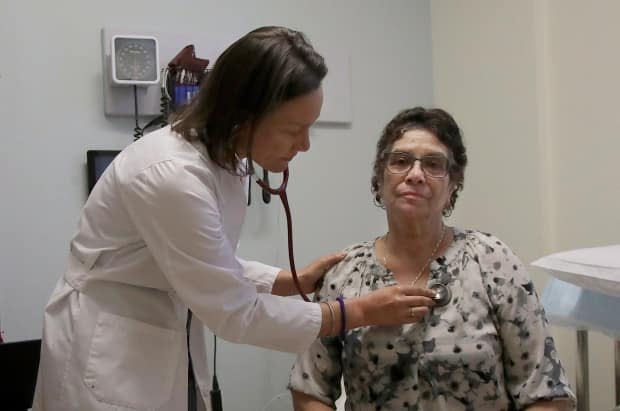Opinion: Nova Scotia's next government needs to invest in the doctor-patient relationship

This column is the opinion of Dr. Aruna Dhara, a co-director of the health humanities program at Dalhousie University and a practicing family doctor in Nova Scotia. For more information about CBC's Opinion section, please see the FAQ.
"Are you taking new patients?"
Every family doctor in the province has heard that question more than once — in their offices, at the grocery store, and in text messages from friends looking for a family doctor for a loved one. More often than not, the answer is a regretful no, and another name gets added to the province's waiting list, which stood at 69,000 people as of July 1.
But Nova Scotians need good primary care — and to deliver it we need to decide what "good primary care" looks like. Without that understanding, we cannot know whether patients are getting the health care they deserve.
Why having access to a doctor isn't the same as having one
For many people, primary care means being able to go to their family doctor or nurse practitioner to manage chronic medical conditions or new concerns as they come up.
It can also mean going to the emergency department, a walk-in clinic, or even a virtual care visit. These services provide episodic care — and they are great for emergencies or one-off concerns.

But these types of visits cannot replace the continuity of care you get from having a dedicated family doctor or nurse practitioner. That care is based on a longstanding relationship created through many clinical encounters over time. Your provider gets to know you, your life, your circumstances — all the things that go into making you healthy.
This isn't a Pollyanna perspective from a family doctor; a study in the UK found that having a relationship with a regular physician is actually associated with living longer.
So, how do we deliver effective primary care to Nova Scotians? The next government will need to invest in it — both by hiring more providers and by changing the way that existing ones are paid so that they can spend more time with patients and with patients' families when they need it. This means rethinking fee codes, payment models and what governments expect from family doctors and nurse practitioners.
Because we know that relationships built over time matter, we should encourage relationship-based medicine — just as we invest in specialists, emergency departments and surgical suites.
Is collaborative care the answer?
If having a regular doctor is a good thing, then it stands to reason that collaborative care, which means that professionals like nurses, social workers, physiotherapists and others can see you at the same clinic, would further improve health outcomes.
But, in fact, if your health-care needs are more straightforward, you probably aren't the patient for whom collaborative care was intended, even if you might say that it's nice to have those extra services.
The biggest impact of collaborative care is for people who have multiple physical and mental health issues, and it's especially significant for folks living with complex social circumstances like insecure housing or poverty.

The truth is, if our ultimate goal is for Nova Scotians to be healthy and thriving, we can't all expect the same level of resources. For some people, their quality of life and even their survival may depend on having access to a team of health-care professionals. The rest of us should be just fine if we have a regular family doctor or nurse practitioner to follow us.
Unfortunately, there is no one solution to our primary care crisis — and any solution will come with its own tradeoffs.
For example, even though most of us don't need collaborative care, doctors and nurse practitioners report greater professional satisfaction when they work in those clinics. In a province like Nova Scotia that's struggling to recruit and retain family doctors, offering that type of work is a significant consideration.
But for now, paying family doctors in a way that encourages them to invest in the relationships between providers and patients is a place to start.
We know that those relationships help people to thrive and stay healthy.
And for all those Nova Scotians on the list for a family doctor, patiently waiting for a call, please know that you deserve one. And as election day draws closer, don't settle for less.
MORE TOP STORIES

